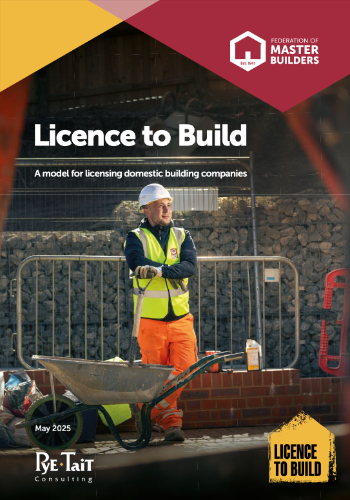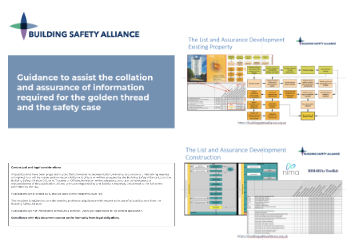Lands Chamber
Contents |
[edit] Introduction
The Lands Chamber is one of four chambers within the Upper Tribunal, part of the UK’s administrative justice system. It was formerly the Lands Tribunal, created by the Lands Tribunal Act 1949, but its functions were transferred to the Upper Tribunal in 2009.
The Upper Tribunal was set up to provide a common means for handling appeals against the decisions of lower tribunals. As such it has equivalent status to the High Court, allowing it to set precedents and enforce decisions. It is the only tribunal to have the power of judicial review.
The Lands Chamber is independent and decides on land disputes, as well as appeals from:
- Valuation tribunals.
- Leasehold valuation tribunals.
- Residential property tribunals.
[edit] Applying
It is possible to apply to the tribunal if the case is about:
- Compensation for the compulsory purchase of land.
- Discharge or modification of land affected by a restrictive covenant.
- Compensation for land affected by public works.
- A tree preservation order.
- Compensation for damage to land caused by subsidence from mining.
- Valuation of land or buildings for capital gains tax or inheritance tax purposes.
- Rights to light disputes.
- Compensation for property blight.
However, opting for a mediation service could be quicker and cheaper than applying for the tribunal.
[edit] Appealing
It is possible to appeal to the Lands Chamber if it is believed there was a legal problem with the decision of the tribunals or the First-tier Tribunal (Property Chamber). However, permission must be given by the original tribunal before an appeal is possible (unless the case is about a rates decision made by the valuation tribunal in England or Wales).
The instructions for appealing are contained in the decision letter. A request for permission must be received by the original tribunal within 28 days of the decision letter.
An appeal should include:
- A copy of the decision being appealed.
- A brief summary of what the case is about.
- Whether the party appealing wishes to attend the appeal hearing.
- Whether any expert witnesses are to be called.
- ‘Statement of case’, i.e. why the decision is being appealed.
- Any other documents required.
The Chamber than decides whether to consider the case, and usually will ask the applicant to attend a hearing. Hearings are generally held in public and, depending on the size of the claim, can cost between £275 and £16,500. If the case is won, the chamber may order the other party to pay the hearing costs.
A decision is issued in writing, usually within 3 months of the hearing.
If it is believed there was a legal problem with the decision at the Lands Chamber, it may be possible to appeal to a higher court. If the Chamber judge refuses permission, the applicant can take their appeal request to the Court of Appeal in England and Wales.
[edit] Decisions database
There is a decisions database available to search and find out the reasons why previous decisions have been made by the Chamber.
[edit] Related articles on Designing Buildings Wiki
- Civil procedure rules.
- Court settlement process.
- Disputes.
- European Court of Human Rights.
- Litigation.
- Mediation.
- Planning permission.
- Property blight.
- Property Chamber First tier Tribunal FTT.
- Restrictive covenant.
- Rights to light.
- Technology and Construction Court.
[edit] External resources
- Gov.uk - Upper Tribunal lands
Featured articles and news
International Electrician Day, 10 June 2025
Celebrating the role of electrical engineers from André-Marie Amperè, today and for the future.
New guide for clients launched at Houses of Parliament
'There has never been a more important time for clients to step up and ...ask the right questions'
The impact of recycled slate tiles
Innovation across the decades.
EPC changes for existing buildings
Changes and their context as the new RdSAP methodology comes into use from 15 June.
Skills England publishes Sector skills needs assessments
Priority areas relating to the built environment highlighted and described in brief.
BSRIA HVAC Market Watch - May 2025 Edition
Heat Pump Market Outlook: Policy, Performance & Refrigerant Trends for 2025–2028.
Committing to EDI in construction with CIOB
Built Environment professional bodies deepen commitment to EDI with two new signatories: CIAT and CICES.
Government Grenfell progress report at a glance
Line by line recomendation overview, with links to more details.
An engaging and lively review of his professional life.
Sustainable heating for listed buildings
A problem that needs to be approached intelligently.
50th Golden anniversary ECA Edmundson apprentice award
Deadline for entries has been extended to Friday 27 June, so don't miss out!
CIAT at the London Festival of Architecture
Designing for Everyone: Breaking Barriers in Inclusive Architecture.
Mixed reactions to apprenticeship and skills reform 2025
A 'welcome shift' for some and a 'backwards step' for others.
Licensing construction in the UK
As the latest report and proposal to licence builders reaches Parliament.
Building Safety Alliance golden thread guidance
Extensive excel checklist of information with guidance document freely accessible.
Fair Payment Code and other payment initiatives
For fair and late payments, need to work together to add value.
Pre-planning delivery programmes and delay penalties
Proposed for housebuilders in government reform: Speeding Up Build Out.
High street health: converting a building for healthcare uses
The benefits of health centres acting as new anchor sites in the high street.
























